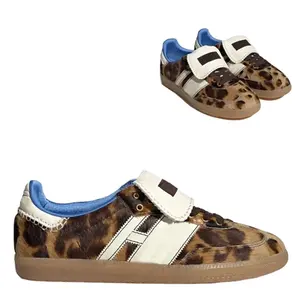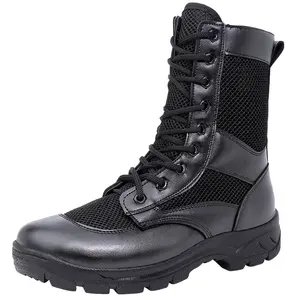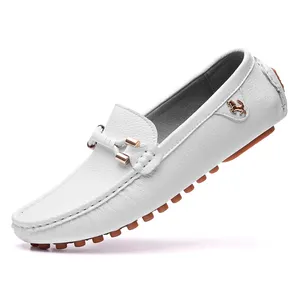Phổ biến trong ngành của bạn

Bán buôn chemic hydroxypropyl Methyl Cellulose dày bột HPMC giá 200000 chất làm đặc cho dầu gội đầu chất tẩy rửa chất lỏng xà phòng
1,75 US$ - 2,95 US$
Đơn hàng tối thiểu: 1000 Kilogram


Giao Hàng Nhanh Chất Tẩy Rửa Làm Đầy Máy Thời Trang Bột Chất Tẩy Rửa Bao Bì Máy Móc Giặt Chất Tẩy Rửa Satchet Máy Đóng Gói
10.500,00 US$ - 13.000,00 US$
Đơn hàng tối thiểu: 1 Bộ


Bột trộn và làm khô máy chất tẩy rửa bột trộn cho Phân bón khô vữa sắc tố đường đánh dấu sơn bột
6.680,00 US$ - 6.880,00 US$
Đơn hàng tối thiểu: 1 Bộ
Vận chuyển mỗi chiếc: 190.424,00 US$


Sản lượng cao bột giặt Máy chế biến bột giặt trộn đóng gói dây chuyền sản xuất
5.050,00 US$ - 6.050,00 US$
Đơn hàng tối thiểu: 1 Bộ


Chất Tẩy Rửa Bột Giặt Bột Thô Chất Tẩy Rửa En Polvo Một Granel Lỏng Thành Phần Giá Số Lượng Lớn Xà Phòng Bán Buôn
0,60 US$ - 0,90 US$
Đơn hàng tối thiểu: 10000 Túi
Vận chuyển mỗi chiếc: 18,80 US$



Chất lượng tốt bán buôn số lượng lớn giặt chất tẩy rửa MSDS phê duyệt bột giặt Poudre một Laver
11.000,00 US$ - 13.000,00 US$
Đơn hàng tối thiểu: 1 Container Bốn mươi-Foot

OEM Bán Chạy Số Lượng Lớn Giá Rẻ Thân Thiện Với Môi Trường OEM 2L 5L Chất Tẩy Rửa Dạng Lỏng Giặt Với Chất Làm Mềm Vải Bột Giặt
0,30 US$ - 2,65 US$
Đơn hàng tối thiểu: 2400 Cái
Vận chuyển mỗi chiếc: 48,87 US$

25Kg Số Lượng Lớn Giá Rẻ Rửa Bột Số Lượng Lớn Chất Tẩy Rửa Bột Từ Chất Tẩy Rửa Nhà Máy Ở Trung Quốc
228,00 US$ - 599,00 US$
Đơn hàng tối thiểu: 15 Tấn

20Kg Công Nghiệp Bong Bóng Số Lượng Lớn Túi Chất Tẩy Rửa Bột Rửa Sản Xuất Bột Xà Phòng
Sẵn sàng vận chuyển
345,00 US$ - 350,00 US$
Đơn hàng tối thiểu: 1 Tấn
Vận chuyển mỗi chiếc: 337,00 US$

180g 250G 500G OEM chất tẩy rửa nhà máy bán buôn số lượng lớn giặt giặt chất tẩy rửa bột

0,12 US$ - 0,15 US$
Đơn hàng tối thiểu: 1000 Túi

Oem ODM tốt nhất bán cao hiệu quả bột giặt chất tẩy rửa số lượng lớn giặt chất tẩy rửa bột
0,30 US$ - 0,50 US$
Đơn hàng tối thiểu: 13000 Cái
Vận chuyển mỗi chiếc: 5,01 US$
Các tìm kiếm liên quan:
phi số lượng lớn bột giặtbột giặt với số lượng lớn màu xanhsố lượng lớn fab bột giặtchất làm sáng bột giặtbột làm sạch tập trungbột tẩy vôibột chống thấm nước silanevi khuẩn helibacter pylorihelicobacter pyloribột tẩy dầu mỡdusting bộtbột giặt msds sản phẩmthương hiệu bột giặt msds25kg số lượng lớn bột giặt500kg số lượng lớn bột giặt

Mua Số Lượng Lớn Giặt Viên Nang Làm Mềm Chất Tẩy Rửa Bột Giặt Pods Số Lượng Lớn Bán Buôn Giặt Giặt Gel
0,07 US$ - 0,09 US$
Đơn hàng tối thiểu: 100000 Cái

Bán Sỉ Bột Giặt Bravo Bột Giặt Giặt Số Lượng Lớn Bột Giặt Giá Rẻ Các Nhà Sản Xuất
200,00 US$
Đơn hàng tối thiểu: 13 Tấn

10KG 15KG 20KG 25KG Số Lượng Lớn Bột Giặt Bột Giặt Cho Quần Áo Giặt
350,00 US$ - 1.000,00 US$
Đơn hàng tối thiểu: 25 Tấn hệ mét

Bao Bì Lớn Số Lượng Lớn Giặt Chất Tẩy Rửa Bột Nhà Máy Bán Buôn Chất Lượng Cao Rửa Bột Số Lượng Lớn Rửa Bột
Sẵn sàng vận chuyển
300,00 US$ - 400,00 US$
Đơn hàng tối thiểu: 28 Tấn
Vận chuyển mỗi chiếc: 1,92 US$

Bán Sỉ Chất Tẩy Rửa Chống Mạt Chất Tẩy Rửa Thương Mại Thân Thiện Với Môi Trường Bột Giặt Số Lượng Lớn Cho Đồ Giặt Ở Bệnh Viện Khách Sạn
0,64 US$ - 1,06 US$
Đơn hàng tối thiểu: 200 Kilogram

Chất Lượng Cao Bột Giặt Giặt Giá Rẻ Chất Tẩy Rửa Bột Trong Số Lượng Lớn Đa Chức Năng Chất Tẩy Rửa
0,08 US$ - 0,11 US$
Đơn hàng tối thiểu: 28000 Cái
Vận chuyển mỗi chiếc: 10,01 US$

Bọt Cao OEM Yemen Bán Buôn Iraq Số Lượng Lớn Bột Giặt Nhà Máy Giá/Chất Tẩy Rửa
340,00 US$ - 350,00 US$
Đơn hàng tối thiểu: 12 Tấn

Tùy Chỉnh Số Lượng Lớn Tự Nhiên Bột Giặt Buddha's Tay Thơm Rửa Tay Bột
550,00 US$ - 600,00 US$
Đơn hàng tối thiểu: 1 Tấn hệ mét

Dây Chuyền Sản Xuất Bột Giặt Máy Giặt Bột Giặt Bột Giặt Bột Giặt
420,00 US$ - 450,00 US$
Đơn hàng tối thiểu: 28 Tấn

Nhà Máy Bán Buôn Giá Sản Xuất Số Lượng Lớn Jabon En Polvo Tetergente En Polvo Bột Giặt Bột Giặt Bột Giặt
0,40 US$ - 0,90 US$
Đơn hàng tối thiểu: 5000 Tấn

Nhà máy công nghiệp yemen thương hiệu MSDS bột giặt 25 kg giặt chất tẩy rửa
2,60 US$ - 3,25 US$
Đơn hàng tối thiểu: 2000 Gói

30G/80G/100G/200G Bột Giặt Bột Giặt Số Lượng Lớn Bột Xà Phòng Dash Giặt Bột Giặt Chất Tẩy Rửa
Sẵn sàng vận chuyển
0,02 US$ - 0,03 US$
Đơn hàng tối thiểu: 18000 Cái
Vận chuyển mỗi chiếc: 0,00 US$

Polyva Bột Giặt Tẩy Vết Bẩn Thân Thiện Với Môi Trường Gia Dụng Bột Giặt Tẩy Rửa Số Lượng Lớn Bột Bán Sỉ
0,03 US$ - 0,05 US$
Đơn hàng tối thiểu: 1 Cái

New Arrival hộ gia đình 1kg 3kg 25kg số lượng lớn bán lẻ bột giặt bột giặt bột En polvo Nhà cung cấp
0,65 US$ - 14,00 US$
Đơn hàng tối thiểu: 10000 Túi
Vận chuyển mỗi chiếc: 15,01 US$

Giặt chất tẩy rửa Pod 6 trong 1 bột giặt số lượng lớn chất tẩy rửa giặt Gel hạt
0,05 US$ - 0,70 US$
Đơn hàng tối thiểu: 576 Cái

Sản phẩm giặt bột số lượng lớn xà phòng giặt hạt chất tẩy rửa
0,06 US$ - 0,08 US$
Đơn hàng tối thiểu: 100000 Cái

Thương mại số lượng lớn bán buôn bột giặt chất tẩy rửa bột giặt trong mẫu miễn phí có sẵn
2,80 US$ - 3,16 US$
Đơn hàng tối thiểu: 1 Thùng
Vận chuyển mỗi chiếc: 61,19 US$

Giá rẻ bán buôn chất lượng hàng đầu Ariel chất tẩy rửa bột giặt/Giặt chất lỏng trong số lượng lớn
2,50 US$ - 4,66 US$
Đơn hàng tối thiểu: 500 Hộp các tông

Top bán hàng hộ gia đình chất tẩy rửa bột giặt hoạt động oxy Bleach số lượng lớn giặt chất tẩy rửa bột cho may mặc
1,17 US$ - 1,48 US$
Đơn hàng tối thiểu: 50 Cái

Nhà máy công nghiệp chuyên nghiệp MSDS bột giặt Pakistan 15kg giặt chất tẩy rửa
2,80 US$ - 3,45 US$
Đơn hàng tối thiểu: 2000 Gói
Vận chuyển mỗi chiếc: 51,69 US$

Số lượng lớn giặt Giặt bột chất tẩy rửa bột cho lớp khác nhau và công thức
360,00 US$ - 380,00 US$
Đơn hàng tối thiểu: 10 Tấn
Vận chuyển mỗi chiếc: 187,22 US$

Miễn phí mẫu số lượng lớn giặt Giặt bột chất tẩy rửa bột cho lớp khác nhau và công thức từ nhà máy
0,70 US$ - 1,00 US$
Đơn hàng tối thiểu: 10000 Túi
Vận chuyển mỗi chiếc: 11,29 US$

Bột Tẩy Rửa Chuyên Nghiệp Bán Sỉ Số Lượng Lớn Bột Giặt
326,00 US$ - 485,00 US$
Đơn hàng tối thiểu: 13 Tấn

Màu xanh màu bán buôn bán thành phẩm chất tẩy rửa bột số lượng lớn chất tẩy rửa giặt bột giặt
425,00 US$ - 435,00 US$
Đơn hàng tối thiểu: 18 Tấn

Số lượng lớn chất lượng cao Ariel giặt chất tẩy rửa bột giặt xà phòng để bán trên toàn thế giới
5,00 US$
Đơn hàng tối thiểu: 500 Gói

Nhà Cung Cấp Giá Rẻ Nhất Bột Giặt Ariel Bột Giặt/Dung Dịch Giặt Với Giao Hàng Nhanh
2,50 US$ - 4,50 US$
Đơn hàng tối thiểu: 500 Hộp các tông

Bột Giặt Bán Chạy Bột Giặt Sản Phẩm Vệ Sinh Gia Đình Để Giặt Quần Áo 5Kg
0,13 US$ - 0,15 US$
Đơn hàng tối thiểu: 100 Túi

Dễ dàng Enzyme miễn phí chất tẩy rửa giặt chất tẩy rửa bột

0,45 US$ - 0,47 US$
Đơn hàng tối thiểu: 25000 Kilogram
Vận chuyển mỗi chiếc: 0,60 US$
Các danh mục hàng đầu
Giới thiệu về số lượng lớn bột giặt msds
Alibaba.com cung cấp các sản phẩm 1928 số lượng lớn bột giặt msds. Có rất nhiều số lượng lớn bột giặt msds lựa chọn dành cho bạn, chẳng hạn như dùng một lần, thân thiện với môi.














